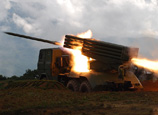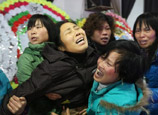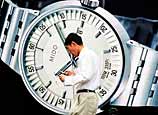
Over the past few months, several top officials within the Chinese government have mentioned that plans to expand the pilot property tax program now at place in Shanghai and Chongqing will be delayed for an indefinite length of time.
In this instance, the government has done the right thing by putting the expansion of this tax on the back burner. Until policies are implemented to lower construction costs, replenish the supply of homes within the market and untangle the current knot of taxes that already adds so much to the price of local real estate, any move to expand property taxes will only complicate efforts to make housing more affordable.
China began experimenting with property taxes in early 2011 as a way to discourage wealthy individuals from hoarding homes for investment purposes, since this kind of speculation limits the number of homes on the market and inflates prices for real buyers. So far though, the taxes seem to have fallen short of reaching their desired goals.
It's an established fact in China that the demand for housing has vastly outpaced supply.
Property speculators are well aware of the realities of the domestic market and can easily redirect property tax expenses onto second-hand buyers when they want to liquidate their holdings.
Of course, officials should not turn a blind eye to speculators, but right now they would be better off creating policies that trim the fat off the land transfer fees local governments charge to developers while also scaling back the extraordinary array of fees that buyers already have to contend with when they purchase a house, since these charges together account for about 90 percent of a home's overall price in China.
At present, there are a total of 37 taxes levied on home transactions. Also, land transfer fees continue rising since many local governments have few other ways to balance their budgets.
Without the proper tools to ease cost pressures squeezing either end of the market, the addition of a property tax into the current situation will do nothing but force speculators to raise the prices of their homes a little further rather than driving them out of the market.
Indeed, examples from recent history illustrate that higher taxes and higher property prices go hand-in-hand. For example, second-hand home prices surged in 2005 when the country began imposing a business tax on home sellers who sold properties held for less than five years, up from the previous cut-off of two years. Clearly home sellers were just forcing buyers downstream to swallow the higher tax in this case, and there is no reason to expect anything different will happen under China's experimental property tax.
The author is an analyst with Anbound Consulting. hejun@anbound.com
















 Railway staff members express Spring Festival greetings
Railway staff members express Spring Festival greetings


![]()
